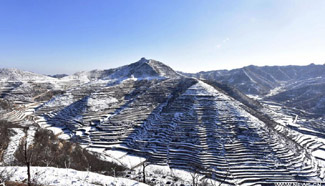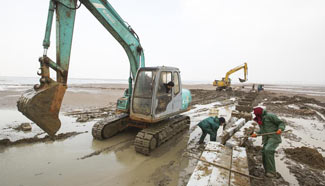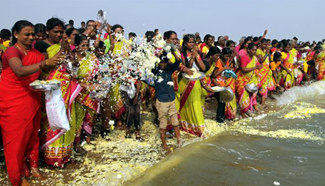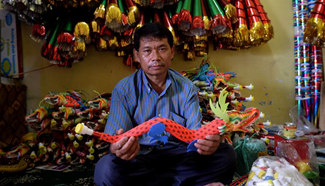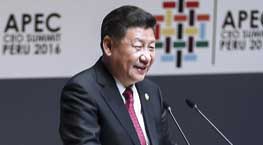HAVANA, Dec. 27 (Xinhua) -- Cuba's National Assembly on Tuesday approved a law that bars naming streets, squares and any public monuments after Fidel Castro, in line with the wishes of the revolutionary leader who passed away in November.
The law also bans erecting statues in his honor.
Prior to his death on Nov. 25, Castro told his brother and successor, Raul Castro, he did not want to be immortalized in that way.
At a public tribute to Fidel four days after his death, Raul Castro said: "The leader of the revolution rejected any display of cult of personality and ... until his final hours insisted that once he was dead, his name and his person never be used to name institutions, plazas, parks, avenues, streets or other public sites, and that no monuments, busts, statues and other similar types of tributes be erected in his memory."
The law was unanimously approved by the more than 600 lawmakers.
Addressing the year's last session of congress, Homero Acosta, secretary of the State Council of Cuba, said the request reflected the "humility and modesty" that characterized the Cuban leader.
"In the spirit of the will expressed by Fidel," the law also prohibits the use of his name or image, thoughts or references of any kind as a trademark or logo, domain name or design for commercial or advertising purposes, said Acosta.
However, the Cuban parliament did make one or two exceptions, so his name can be used in the future to name an institution that studies the former president's role in the history of the nation, or research center that investigates his legacy.
The law does not restrict artistic or literary works inspired by the legendary leader or the publication of thousands of images taken of Fidel throughout his life.
Pictures of Castro at state institutions, schools, universities, military units and other public places can remain in place as a sign of permanent tribute and respect.
"Fidel will continue to be an icon in the struggles of the Cuban people to preserve our unity, our independence, our sovereignty and our socialism," said Acosta.



